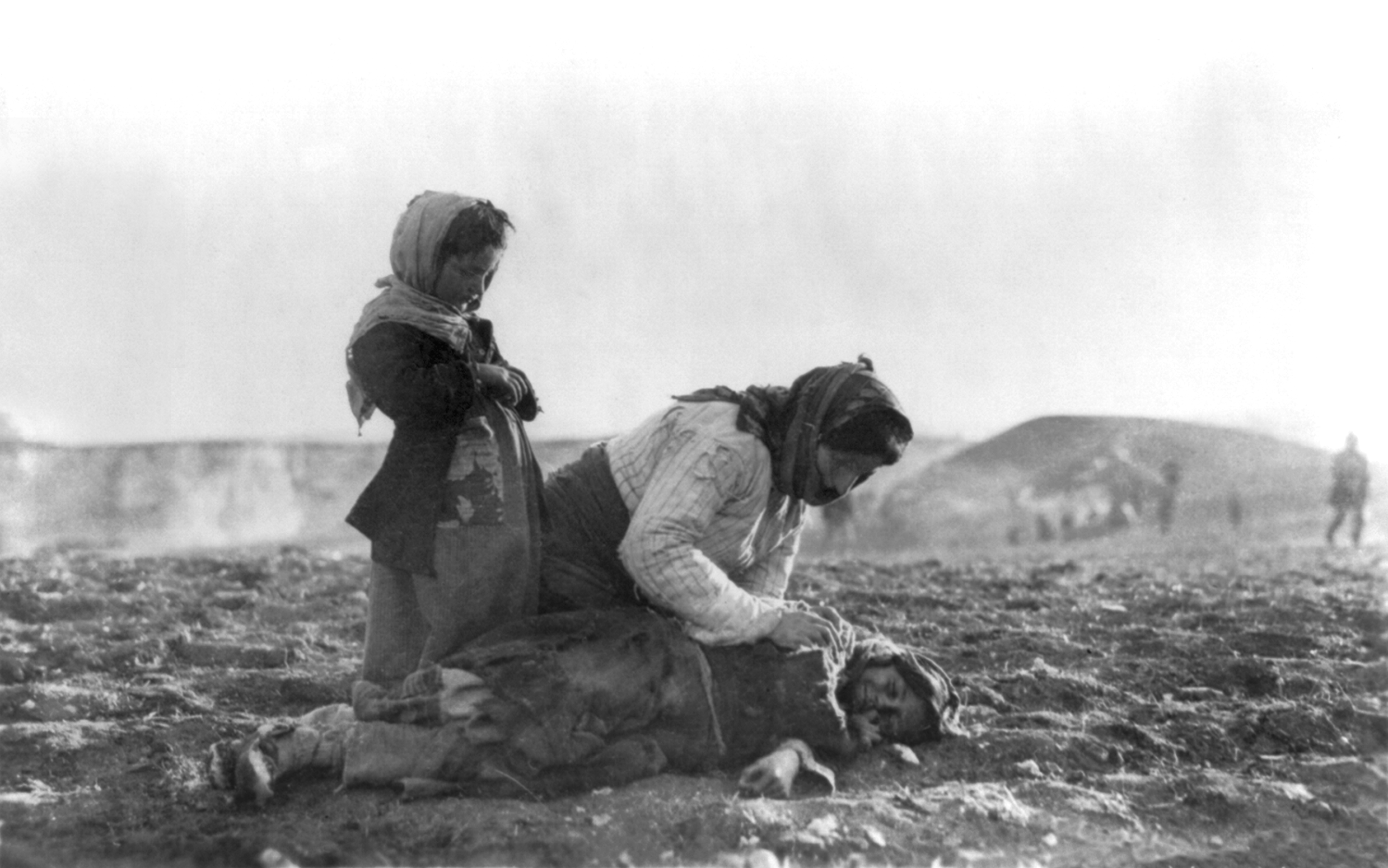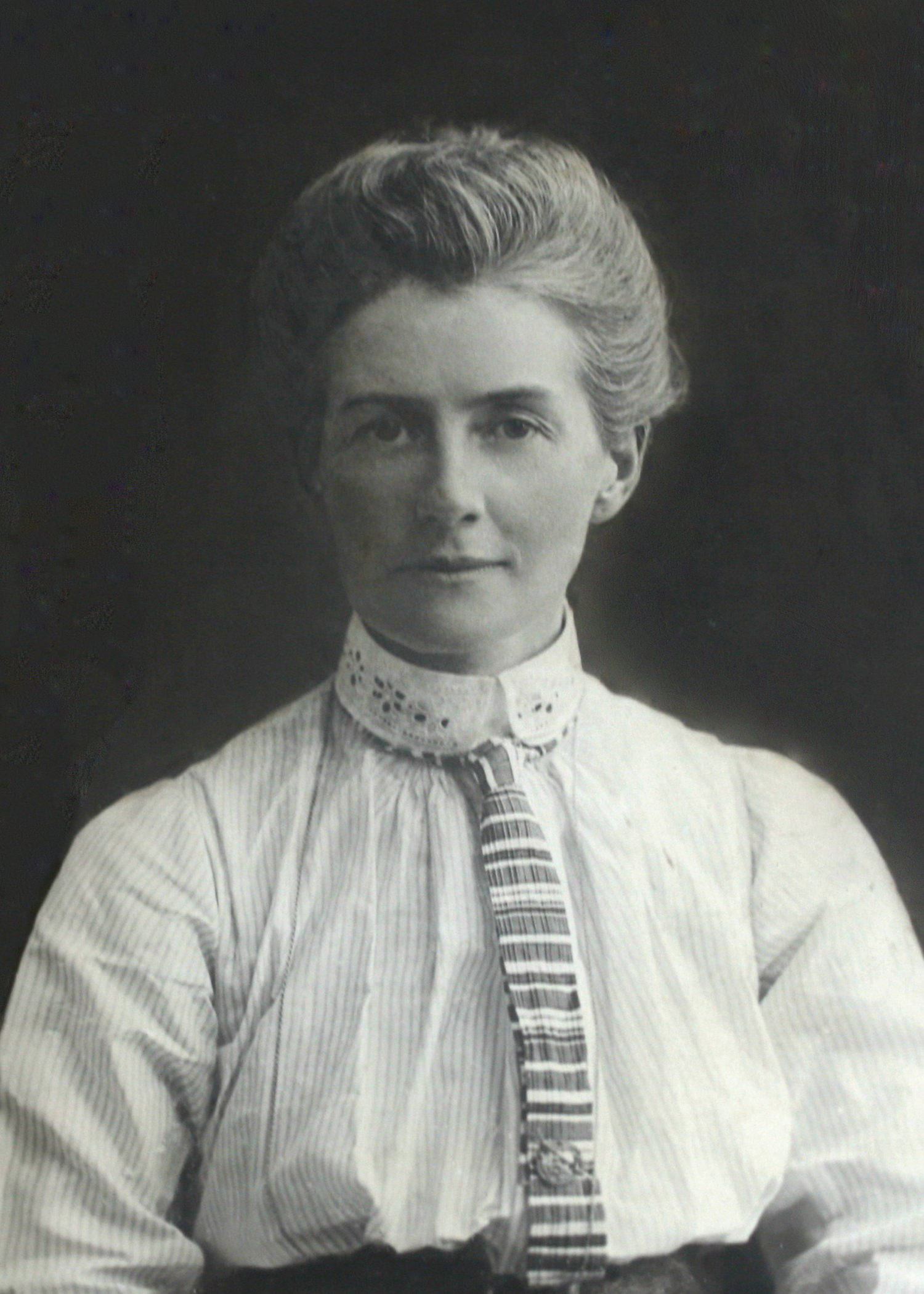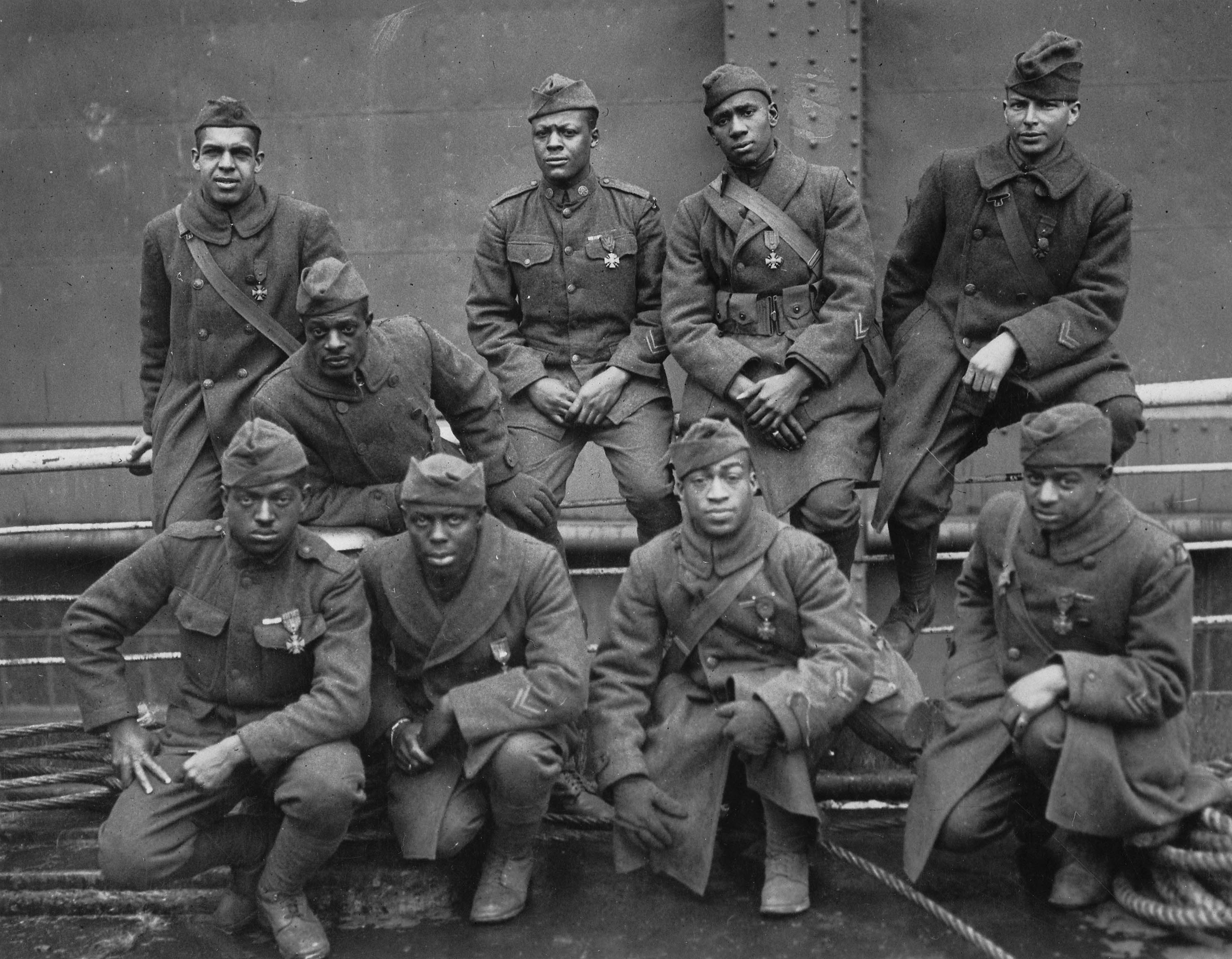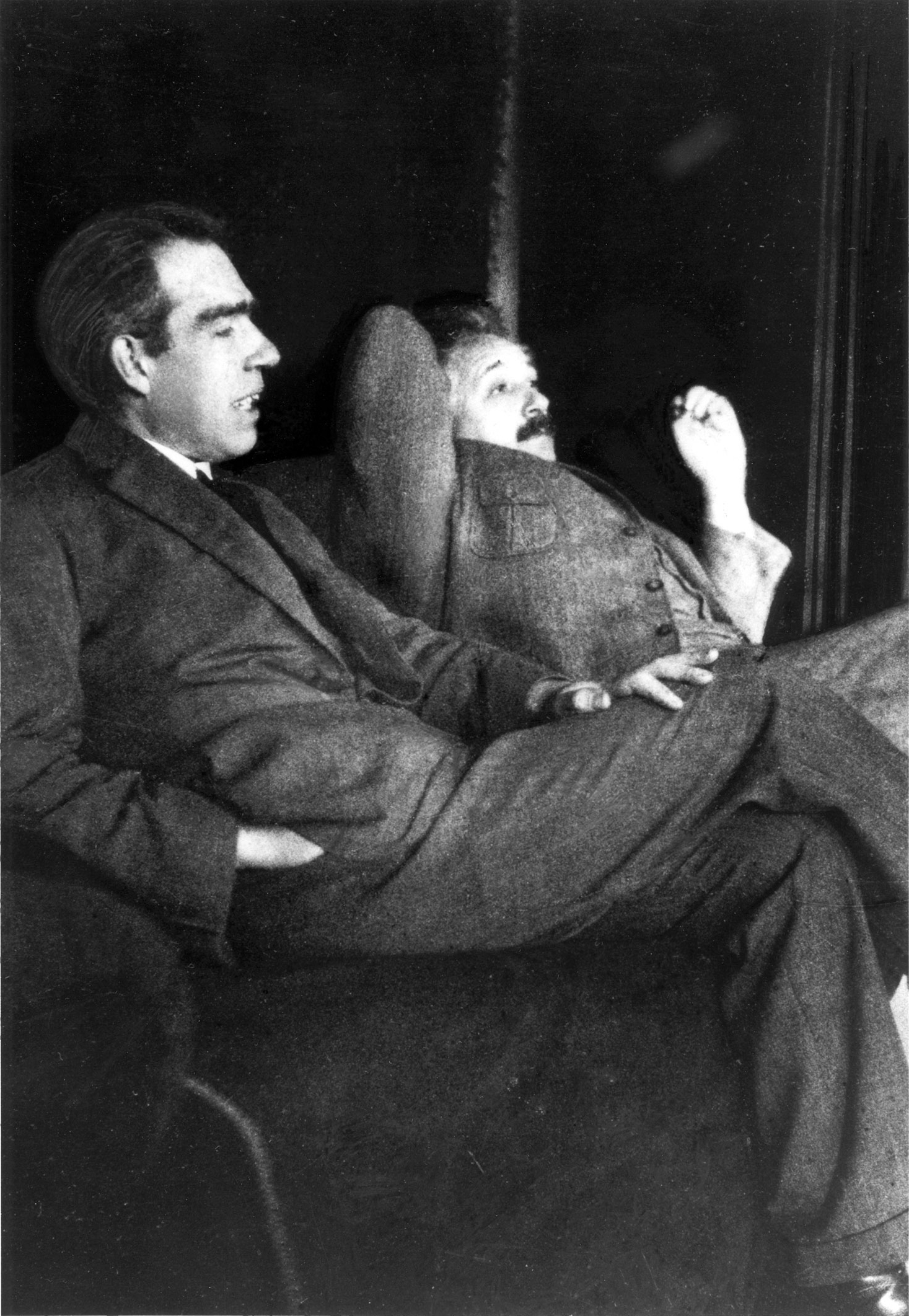Chapter 17. (completed)
And
now, to close, I offer a short dialogue between two friends discussing the
ideas that have taken us so long to explain. A nutshell summary of the thesis
of this book, if you like, in a more entertaining format.
A scene
in a sidewalk café in Vancouver, Canada, where two characters meet and have a
Socratic dialogue. A University of British Columbia graduate student, Flavius,
known to his friends as Flux, is drinking coffee and relaxing in the spring
sunshine. Serendipitously, his friend, Evo, another grad student, strolls past.
Flux recognizes him and calls out.
Flux: Evo! Evo, you subversive element! Over here!
Evo: (Drawing
near.) Well, well. The quarry you see when you don’t have a gun. What
mischief are you plotting now? Wait—I’ll get a coffee. (Goes to counter to order.)
Flux: (Muttering
to himself.) Hmm. Just the guy I wanted to see. I think.
Evo: (Approaching
with his coffee in hand and sitting.) So, what’s up?
Flux: The truth is … I’ve been getting more and
more obsessed in the last few weeks with the whole debate over the existence of
God. And over moral relativism, and whether we need to believe in God to be
good. Whether people in general do, I mean. Not you and me. We’re so good we’re
excellent. That’s an axiom. (Laughs
awkwardly.)
Evo: (Glancing
at a girl going by.) I can resist anything but temptation. But seriously, folks.
Flux: (Looking
glum.) It is serious, actually,
this moral thing. These days, I can’t seem to think of anything else. Almost
everyone I talk to at UBC despises religion, but none of them have a way of
deciding what right and wrong are. It’s all relative, they say. Then I say
they’re committing humanity to permanent warfare, probably annihilation, when
they say things like that. They shrug and tell me to grow up. We’re doomed, my
friend. Humanity is doomed, even if it is a nice day. (Laughs darkly.)
Evo: Are you sure you want to start this
conversation? I have a lot to say on the subject, you know. And, after all, I
am older and wiser than you are. (Laughs.)
Flux: Ah, be serious. But … yeah, I know you’ve
thought about this one. Which makes me ask—if you’re okay with talking about it—do
you still believe in God?
Evo: I do.
Flux: When we talked about this before, your
answers didn’t really work for me. But you’re saying you still believe?
Evo: Yes. (Pauses.)
I don’t buy most of the world’s religions, or priests, or holy books. But the
answer is, basically, yes.
Flux: Still.
Evo: More than ever. When did we last talk about
this stuff? At that party at the lake?
Flux: Yeah. That was it. And you haven’t changed
your mind? At all?
Evo: No. (Pauses.)
The short answer is “no”.
Flux: What’s the long answer?
Evo: How much time do you have?
Flux: It’s Friday afternoon. I have no place I have
to be till Monday morning. Come on. Seriously. The whole issue is weighing me
down.
Evo: Well, how about you ask questions, and I’ll
try to answer them.
Flux: All right. So do you really believe in God,
in your most private heart of hearts?
Evo: Yes.
Flux: What was the crucial moment or crucial
logical step, or whatever you call it, for you?
Evo: No one moment. No one step. No epiphanies. I
came to it gradually for a bunch of reasons, backed by logic and evidence.
Later, it did get personal. It’s in my “heart of hearts” as you put it. I call
my own kind of religion theism, which
isn’t a very original term. But I need to be clear that I think each of us has
to work out his or her own way of conceiving of God and relate to that
personally in their own good time. I came to believe that moral beliefs can be
based on what science is based on—the facts of empirical reality. That’s moral
realism, and it led me gradually to think we have to design a moral code that’s
acceptable for all people, and then live by it …and learn to live together.
Gotta do these things if we’re gonna survive. I got motivated to think hard for
a while. I came to two conclusions. First, that moral values do name things
that are real, and second, that the core belief in the moral code that will
allow us to survive …that core belief is theism. In other words, moral realism
logically entails theism.
Flux: All right, wait a minute. Realism? You’re
saying values are real like this cup is real? I’m not gambling on whether this
cup of coffee is in my hand right now. It’s there. It’s real. I’m certain of
it.
Evo: No, actually—that statement isn’t a certainty,
even if you think you’re certain of it. Human senses can be fooled. That’s what
the movie The Matrix is about.
Flux: Hmm. Okay. I take your point.
Evo: Every belief is a gamble, even our belief in
science and the scientific method. The smartest of smart gambles is theism.
Believing in God. Not so I can improve my odds of getting into some dimly
imagined afterlife, but so I and my kind can survive. Here. On earth. So we can
handle what the future’s going to throw at us. Navigate the hazards. Once I
proved my version of a universal moral code to my own satisfaction, from there
it was a series of small steps to the core belief in God.
Flux: But you must have periods of doubt? Surely.
Evo: I used to. But they’ve almost gone. Mostly
because I keep answering the doubts inside my own head. Over and over. I’ve
seen all the doubters’ best moves. I can whip ’em. (Laughs.)
Flux: So …what, then? Your belief, in your
head ̶
your theism, I mean – is constantly fighting for its life?
Evo: Pretty much. All beliefs in all heads have to
fight to survive.
Flux: But you don’t worry that one day the theism
in your head is going to lose?
Evo: I don’t know for sure that I’ll never lose my
faith, but the signs are that it’s pretty durable.
Flux: And yet you love science?
Evo: Absolutely. Science is God’s way for us. For
humans in general, I mean.
Flux: Were you ever an atheist?
Evo: Oh, sure. I look back on it now as a phase I
had to go through. Everyone does. Some people don’t ever get to the other side,
that’s all. Other side of that atheist phase, I mean.
Flux: You don’t worry that what you see in the real
world is …only what you want to see?
Evo: I see science and the theories of science,
Flux. Testable. Repeatable. They and all the experimental evidence that
supports them keep telling me, more and more, that God is there. Here. Real.
Flux: But you did have periods of doubt?
Evo: Oh, yes. For fifteen years. And then I only
came around a few years ago to believing I ought to believe in God. That it was
a smart gamble. And that everything in life is a gamble in the end. Even the
most basic things you trust—not just science, but even believing your hands are
at the ends of your arms because you see and feel them there. Sense data. Things
you sense. But for a long time, that smart theistic gamble wasn’t personal. Not
personal like you love Marie or your mom and dad. It was only cerebral. I
believed in believing in God, but I didn’t believe – like – primally, if you
get my meaning.
Flux: Yeah, I get your meaning. So what changed?
Evo: I started meditating. Every day. Half an hour
or so. Sometimes, twice a day.
Flux: Did you take a course?
Evo: Yes.
Flux: Which one?
Evo: It doesn’t matter. Check around. Find one that
works for you. Then it’ll feel like it’s yours.
Flux: Hmm. Okay. That’s fair. And then what? God
just arrived?
Evo: Basically, yes. I realized one day that I was
hearing an inner voice. Not a great way of putting it, but close enough. During
the time when I was trying to control every detail in my life, I was going
nuts. Then I learned to accept handling just the details my conscience—God’s
voice in my head—told me were mine to handle, my responsibility. It was like, I
became “response-able”—able to
respond—and then I got good solutions just as I was coming out of my
meditation, or right after. It was a way of thinking about God that made sense
to me. Let God—the universe, if you like—talk to me. Then I’d get some quiet,
excellent answers. Like a presence was hovering by me and nurturing me. That’s
not very dramatic. But it’s how I experience my personal sense of God. Like I
love my kids. Or my dad. Personal. First, for large, evidence-backed reasons,
and then, second, for internally felt ones.
Flux: (Studying
his friend closely.) And it still seems like a rational decision to you?
Evo: More than that, Flux. I think as a species
we’re all going to have to come to some form of moral realism, then theism, if
we’re going to get past the crises that are coming. Getting rid of nukes.
Fixing the environment. Moral realism is the only option that has any chance of
working. Nobody trusts the so-called sacred texts or the priests anymore. Most
don’t trust personal epiphanies either, no matter how intense the events feel.
We know it’s too easy to see what you want to see. First, we want models that
fit our observations of empirical evidence, over and over. And moral realism,
for me, is that kind of true. It’s a model of reality that fits the facts of
history and of daily life.
Flux: You think Science proves that God exists? I
know people who’d laugh out loud at that.
Evo: They don’t see history or anthropology as
sciences, Flux. And they don’t study the basic assumptions of science. Analyze
science itself. If they did, they’d reconsider.
Flux: So tell me. For you, what moral values are
grounded in empirical reality?
Evo: Humans have gradually evolved responses to
entropy, over billions of people and thousands of generations. The cultures
that emerge may vary from era to era and place to place, but every one of them
seeks a balance of courage and wisdom. Those values are our big-scale responses
to entropy, the “uphillness” of life. Courage and wisdom. Other balanced sets
of values built around freedom and love are our responses to quantum uncertainty.
All four values—courage, wisdom, freedom, and love (checks them off on his fingers)—inform the software of all nations
that survive because they shape how people in those tribes behave. And that
connects them to reality. To survival, in other words. And those basic
qualities of adversity and uncertainty, remember, are built into our universe
right down to the atoms and quarks. Those qualities are everywhere, all the
time. We learned to handle entropy and uncertainty, not as individuals, but as
tribes, over centuries, by building our societies more and more on those four values.
Flux: Those are some pretty large and vague moral
principles to build a culture around. A lot of radically different societies
could be constructed that all claimed they were brave and wise and so on.
Evo: Which is only to say how free we truly are,
Flux. But notice my system is way different than saying that moral values are
just arbitrary tastes, like a preference for vanilla shakes over chocolate.
Flux: I think I see where you’re going with this
line of thought. We could build an ideal society or something pretty close to
it, couldn’t we?
Evo: We’ve been working our way toward that
realization for two million years.
Flux: These moral values, the way you describe
them, must have been worked out over a long time, and also with a lot of pain
then …right?
Evo: Pain and more importantly, death. Which is why
we’re taught to respect our values so much. Our accumulated wisdom keeps
telling us we don’t want to revisit our past mistakes.
Flux: Here’s a mental leap coming at you. How would
the kind of ideal society you envision — brave, wise, free, tolerant — right? –
how would it evolve, without war or revolution? How would it resolve an
internal argument over some controversial social issue?
Evo: Like capital punishment, say?
Flux: Whoa! Quick answer. But, yeah. Not the one I
had in mind, but a good example, actually.
Evo: Reasoning and evidence. Gradual
consensus-building. Scientific studies. Calm persuasion. The facts say it
doesn’t work, you know. Capital punishment, I mean.
Flux: How so? It seems to me that it solves a
problem permanently.
Evo: Countries that get rid of it see their murder
rates go down, not up. It doesn’t deter potential killers. Just the opposite.
It makes them determined to leave no witnesses. To any crime. And then capital
trials drag on and on ’cause juries don’t want to make a mistake. In the end,
it costs more to execute an accused killer than to lock him up …for good.
Long-term studies say so.
Flux: What if he lives a really long time?
Evo: In my system, barring exceptional
circumstances, he’d stay locked up. But most of them die in under twenty years.
They’re the kind of people who live unhealthy lifestyles. Junk food. No
exercise. Drugs. Cigarettes. Fights. They don’t last in prison or out. On
average, I mean.
Flux: But even if, say for the sake of argument, they
only last twenty years in prison, that’s a long time. Guards to pay, meals,
medical supplies, entertainment … it’s gotta add up.
Evo: Not as much as killing him does by, like,
nearly three times. The studies say so. On average, killers only live about
seventeen years after they go to prison.
Flux: I’ll look it up when I get home. But back to
our point. You think we can solve everything by debate and compromise?
Evo: Based on reasoning and evidence, the answer is
yes. And patience. Just not war. The Soviet Union went from being an
unstoppable superpower to gone in my lifetime. With no global war. I’ll never
doubt the transformative power of patience again.
Flux: I think I’m beginning to see your point a
bit. You see moral guidelines as being grounded in the facts of physical
reality?
Evo: I’ve made that case for myself and some others
many times over. Entropy and quantum uncertainty are built into the fabric of
reality. As long as I’m in a universe that is hard and scary, then courage,
wisdom, freedom, and love will be virtues. That picture—for me, anyway—is more
reliable than my senses. It’s eternal. I’m 99.99 percent sure.
Flux: And that proves for you that God exists?
Evo: That and a couple of other main points. Even
assuming the universe stays consistent from place to place and era to era is an
act of faith. No one can prove the future will go like the past. But we take it
as a given that the universe has that kind of consistency. Science wouldn’t
make any sense under any other first assumption. Then, I get direction from
today’s cutting-edge science—quantum physics. All the particles in the universe
are what physicists call entangled,
you know. Which just means that the universe has its own kind of awareness.
Flux: What, like I’m aware?
Evo: As far beyond your and my awareness as the
universe is beyond us in size. Yeah, that’s a hell of a statement. I know full
well what I’m saying. But look at the evidence. Let me say it all at once, as
plainly as I can. The first step to theism is believing in the consistency of
the universe. The second is believing the universe is aware. The third is moral
realism, which means believing that courage, wisdom, freedom, and brotherly
love — steer us into harmony with the particles of matter, from quarks to
quasars. Those three big beliefs—in universal constancy, universal awareness,
and universal moral truth—when they’re added together, tell me this universe is
a single, aware, caring thing. This aware universe is “God,” if you like that
term. If not, that’s okay. Call it by whatever name works for you.
Flux: Cold sort of caring, don’t you think? There
are a lot of cruel things in life.
Evo: No, it just looks that way to us sometimes.
But it’s unreasonable and unfair for me to ask God to pardon me from getting
cancer or meningitis or whatever …if the dice roll that way. God loves it all,
all the time. God loves the avalanche that buries the careless skier who skis
out of bounds. God loves malignant cells and meningococcal bacteria just as
much as God loves me. We may learn how to change the odds, to cure meningitis
or prevent cancer, but in a universe that is balanced and free, those
scientific advances are up to us. Our brains evolved to solve puzzles exactly
like those ones.
Flux: You know there are people who get the
consistency-of-the-laws-of-science idea, even the quantum-entanglement-awareness
one, but leave you right at that moral realism step.
Evo: Oh, I know. They keep trying to find some
other way to get principles of good and bad from the natural world. A lot of
people don’t want God. They want to be in charge. Like Nietzsche. (Laughs.)
Flux: Other species—chimps, squirrels …so on—find
altruism on their own, you know. Sometimes, one of them will do something for
the good of the community and even get killed because of it.
Evo: Then the next thing to ask is: What kind of a
universe rewards those animals’ finding and practicing altruism? People finding
altruism in nature and saying that means they don’t need to believe in God in
order to be decent …that dodge is no dodge at all. It only delays answering the
moral question. Why is being altruistic – what they call “good” – a desirable
way to be? So the tribe survives? Well, if that’s the case, then we have to ask
again: what is that telling us about the basic nature of reality?
Flux: All right, I see why you say that. Your moral
values would seem moral to aliens from other worlds. Do you dislike people who
keep, as you say, “dodging” the moral realism question?
Evo: Not at all. As long as I can see that they’re
trying to live lives of courage, wisdom, freedom, and love, I love them. They
may get old and die and never say that they believe in anything like God, but I
don’t care. I still love them. Hey, if they try hard to live decent lives, for
me that’s enough. But believe in God? By the evidence that shows on the outside
of them—which, by the way, is all science cares about—they actually do. Do
believe, I mean. They just choose a lonely existence inside. Which is their
choice, of course. But I still love them.
Flux: They’d tell you that viewpoint is pretty
condescending.
Evo: They have, many times. It’s still okay. We can
live together in peace. And still evolve and survive. That’s all that really
matters. (Pauses.) But we must choose
to live. Surviving’s not a given. So we need a system of ethics in order just
to decide even simple things, minute by minute, day in and day out, about every
object and event we meet up with. Good or bad? Important or trivial? Take action
or not? What are my action choices? Which one looks like the best gamble in this
situation? The most efficient moral code
will be the one that’s laid out so our decisions are quick, effective, and
accurate. Consistent with the facts of reality, short and long term. A central
organizing concept—a belief in God – is just efficient. At least to start with.
It’s only after a lot of work inside yourself that it becomes personal. But it’s
first of all just …efficient. It gets results.
Flux: Your picture isn’t very comforting, you know,
Evo. The mental space it offers is pretty bare.
Evo: I know. I’d be a liar if I offered you easy
grace. You first have to choose to be responsible for your own life. Then so
many other challenges come. But they’d come anyway. It’s just that if you
choose to bow your head and take the beatings fate dishes out, without trying
to figure things out and improve your odds of happiness, your life’ll be even
worse. You have to choose to choose, and even then life is going to be rough. God’s
a hard case. But I’m okay with seeing God as a pretty hard case. To make
something out of nothing, he has to be. A balance of forces makes something out
of nothing. And in that picture, God made us free, Flux. Whether we choose to
rise to the challenge, to live bravely and creatively, is up to us. Out of the
labour, we make ourselves – and then our society – good, and if we’re really
good, we teach our kids to do the same. Hopefully, even better.
Flux: You don’t believe in miracles, do you?
Evo: “Only in a way” would be my answer there. I
think events that look miraculous happen. Things that look like exceptions to
the laws of science. But later they turn out to have scientific explanations.
For me, everything I see around me all the time is the miracle. What’s it doing
here? Why isn’t there just nothing? And then the living things in the world are
more miraculous, and then …my baby’s smile …you know what they say. It doesn’t
get any better than that.
Flux: Is there a church you could belong to? Are
you pulled to any of them?
Evo: Unitarians, maybe? Nah, that’s another
question that you need to answer for yourself.
Flux: Any you hate?
Evo: Honestly? Nearly all of them. Priests make up
mumbo-jumbo to take away people’s ability to think for themselves. It’s easy
with most people ‘cause they want security. But there’s no such thing. Not in
this lifetime. That one I’m sure of. Maybe they don’t consciously make it up,
but they do make it up. Priests, I mean. It gets them a slack lifestyle so they
gravitate to rationalizing ways to protect that. Over generations, the lies
just keep getting worse. No, I’m not big on organized religion.
Flux: Would you call yourself a dreamer? A
starry-eyed optimist?
Evo: I seem that way to some people, I’m sure. My
view of myself is that I look at the long haul. I’m most interested in that.
Then, what energy I have left over I give to the small, confusing ups and downs
of everyday matters. I guess some would call me a dreamer. But cynics are
cowards to me. It’s the dreamers who have courage. And once in a while they
turn out to be right, you know. (Laughs.)
Flux: I better let you go, Evo. I’ve kept you long
enough. I was just feeling …down …you know.
Evo: You’re not keeping me from anything that
matters as much as this talk does, bro.
Flux: Alright. I’ll take that as being sincere.
Actually, knowing you as long as I have, I know it is. Thank you. I’m feeling …I
don’t know …hopeful, somehow, right now. (Pauses.)
Actually …I think I get it.
Evo: Welcome home, Flavius, my friend. Welcome
home.
Here the Great River Now empties into the sea;
Here the babbles and roars of Duality cease;
Every echoing gorge, every swirling façade,
Is dissolved in the infinite ocean of God.
(Author unknown)
Notes
1.
Nicholas Maxwell, Is Science Neurotic? (London,
UK: Imperial College Press, 2004).
2. “History of
Science in Early Cultures,” Wikipedia,
the Free Encyclopedia.
Accessed May 2, 2015. http://en.wikipedia.org/wiki/History_of_science_in_early_cultures.
4. “Pawnee
Mythology,” Wikipedia,
the Free Encyclopedia.
Accessed May 2, 2015. http://en.wikipedia.org/wiki/Pawnee_mythology.
5. “Quantum
Entanglement,” Wikipedia,
the Free Encyclopedia.
Accessed May 2, 2015. http://en.wikipedia.org/wiki/Quantum_entanglement.
6.
Jonathan Allday, Quantum Reality: Theory
and Philosophy (Boca Raton, FL: CRC Press, 2009), p. 376.
7. “Quantum
Flapdoodle,” Wikipedia, the Free
Encyclopedia. Accessed May 2, 2015. http://en.wikipedia.org/wiki/Quantum_mysticism#.22Quantum_flapdoodle.22.
8. “Occam’s
Razor,” Wikipedia, the Free
Encyclopedia.
Accessed May 4, 2015. http://en.wikipedia.org/wiki/Occam%27s_razor.































